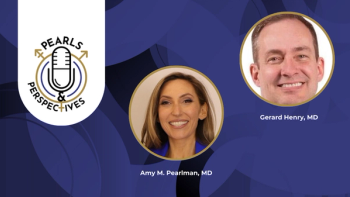
Study: Humor-centric approach to ED care may not resonate with all patients

“Across the whole survey, an average of 66% preferred the professional card. The highest rate of selection of the humorous card in a single question was only 38.4%,” says Max D. Sandler.
In this interview, Max D. Sandler highlights the background and key findings from the study, “Prospective Patient Preferences for Humor in Urologists Treating Erectile Dysfunction: A Survey Study,” for which he served as the lead author. Sandler is a third-year medical student at the University of Miami Miller School of Medicine in Miami, Florida.
Video Transcript:
Could you describe the background for this study?
First, just wanted to thank you for the opportunity to speak with you today. At least in my experience, urologists tend to be some of the funniest and most approachable physicians in the hospital. So, I thought it would be interesting to see how those traits made patients feel, especially for patients who might have a stigmatized condition like erectile dysfunction. So, unfortunately, there's not a lot of research on humor. It's hard to standardize; it's hard to study. So, I couldn't find that much literature out there, but I was able to find one study by an author named [Elisabeth] Sartoretti, and they found that women who received a funny business card during a routine mammogram screening tended to remember the radiologist's name better, they tended to rate the encounter as more positive overall. That's the background that helped guide me when I started thinking about how I wanted to do this project.
What were the key findings?
We created 5 pairs of mock business cards. They were for physicians; the business cards were physician business cards. In each pair, one was a humorous card, and one was a professional card. The funny card alluded to erections. For example, had a symbol of a diamond and the caption was "harder is better" on the business card, while the professional card just advertised expertise in health care, and didn't mention ED or anything. We posted an anonymous survey online to a website where respondents completed short tasks like surveys. Our survey basically asked them to imagine that they had erectile dysfunction and they're seeking a urologist to help them. Then they were asked which urologist they'd rather see based on the business cards of Dr. Smith or Dr. Jones, which were just the names that we assigned to the funny or the professional business card in each question. Respondents were able to pick Dr. Smith, Dr. Jones, I wouldn't care if I saw either urologist, or neither––they don't want to see either of them.
We had almost 1000 participants. The results showed a preference for the professional card in almost all questions. Across the whole survey, an average of 66% preferred the professional card. The highest rate of selection of the humorous card in a single question was only 38.4%. So, honestly, it was a bit of a surprise to us. We had a suspicion that participants would enjoy or appreciate a little bit of humor. We thought maybe it'd be more enjoyable for participants to seek out a physician who embraces humor, which would be similar to the results of the radiology study that I mentioned earlier. But something to keep in mind is that the participants in our study were prospective patients. So, they might not really have erectile dysfunction. They were completing tasks online, and they were being compensated, so efficiency might be a goal of theirs. We thought maybe they just might have seen this as a medical themed survey. So, they might have just chosen a professional card due to medicine's inherent ties to expertise. We think that the results of this study perhaps would be pretty different if it was conducted in a real clinic [with] real patients who actually have a stigmatized condition like erectile dysfunction, because they feel a stigma. People with a stigma may better appreciate humor to break the ice and create a trustworthy atmosphere with physicians.
This transcription has been edited for clarity.
Newsletter
Stay current with the latest urology news and practice-changing insights — sign up now for the essential updates every urologist needs.






